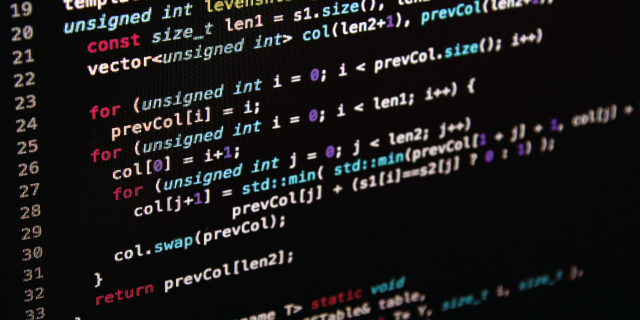As technology becomes more and more reachable, the requirement for programmers is always increasing. Coding is a skill perfected and learned over time, but everyone has to begin somewhere. There are numerous languages that are ideal for beginners regardless of the space that you’re interested in.
Learning a Language
Don’t fret too much about what language you picked up. Numerous beginning coders struggle with what language to pick when they first begin learning. (Because they don’t understand where to begin with the first code). The actual language that you begin learning on doesn’t make a huge difference when it comes to learning about logic and data structures. These are the skills that matter most, and they could be honed with few languages.
Discover free resources online for the language you selected. The internet is a treasure trove of free videos, tutorials, and classes, all tailored towards the language of the choice. You do begin getting a basic learn of just about any introductory language in the day.
Downloading a great text editor. Many programming languages permit you to apply external text editors when you pen up your code. Explore a text editor that will permit you to check out code markup and indentations.
Download any essential compilers. Few programming languages needed a compiler in order to run the code that you created. Compilers translate the code you pen up into a low-level language that the machine does processing. Numerous compilers are open-source and free to use. Languages that needed compilers include:
- C
- C++
- C#
- Java
- BASIC
- Fortran
Start your foremost project. Picking a great introductory project that would support you getting your feet wet. There are numerous tutorials online and suggestions, but certain places to begin are major websites for HTML, basic database and simple programs, format functions with PHP with some of the compiler languages.
Comment all of the code. All programming languages have a commenting feature that permits you to enter text that is avoided by the compiler. This permits you to add comments to the code. These comments are significant, both for letting others understand how your code works and for reminding yourself of what the code does.
Pick apart other web projects and programs. When you grasp as you go, don’t be ashamed to look things up and see how others have tackled the similar tasks. Taking time to understand why the code is working and what it does.
Expanding Your Knowledge
Take classes. Online programs, Community colleges, and tech schools offered classes and certifications that would support you get a job as well as teach you programming. An advanced degree such as Computer Science is not always essential, but does support you to get a computer time programming job.
Expanding your knowledge. Beyond simply learn programming languages, you would profit a lot from mathematics and logic classes, as these are often needed for advanced programming. You don’t necessarily want to grasp this at school, buy a classroom set up and do support.
Learn more languages. Once you’ve got an awesome grasp on the initial language, you do begin to branch out. Find another language that complements the one you know, or picking a language for a particular job that interests you. Complementary languages like CSS and HTML are often easy to grasp.
Be patient. You would often be faced with challenges while programming, especially when it comes to hunting for bugs or implementing a new idea. You’ll have to grasp to be satisfied with achieve tiny results rather than solve a complete puzzle at once. Patience leading to more effective code, which would lead to good-performing programs and happy colleagues.
Learning to work with others. If you have numerous humans working on a project, you get numerous viewpoints on how to go about it. Work on teams is virtually inescapable in the business space, so unless you plan to generate everything independently, be prepared to work with others.
Getting a job where you do practice coding skills. Working as a writer of desktop applications and volunteer designing websites. A chunk time job with a tiny company does lead to chances to pen up code for simple applications and websites.
Connected with other programmers. There are gatherings of developers and countless communities that do help support and motivate you. Looking up local programming conventions, participating in a hack-a-thon or game jam (timed events with the common theme), and signing up on certain programming forums to begin expanding your network and exposure.
Practice, practice, practice. It is estimated that it takes about 15,000 hours before you are considered an expert in computer programming. This is years of practice. True mastery of programming would come only after you put the time in to practice and become skilled.



